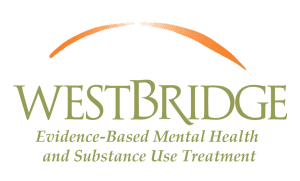International Journal Publishes WestBridge Outcomes Research
Our study: Outcomes of a Residential and Community-Based Co-Occurring Disorders Treatment Program in the International Journal of Mental Health and Addiction is accessible online.
Independent researchers at both Westat and The Dartmouth Institute for Health Policy and Clinical Practice found that integrated, evidence-based treatment can be effective for men with co-occurring disorders who did not benefit from prior treatment. The study analyzed participants at WestBridge who were most commonly diagnosed with Schizophrenia Spectrum Disorders, Bipolar I Disorder, Major Depressive Disorder, and Polysubstance Use Disorder or Cannabis Use Disorder. Most had previously experienced multiple hospitalizations and treatment episodes, employment disruption, family distress, and legal involvement.
The study concluded that individuals who engaged in services for at least one year benefitted substantially and were in recovery across various domains, including: level of functioning, family relationship status, housing stability, educational and employment activities, and mental health and substance use disorder management. These factors are integrated into the WestBridge model of care. Treatment completion and family involvement were key components. Continuity of care between residential and Assertive Community Treatment (ACT*), combining multiple research-based interventions, and an intensive family program are unique features that may have contributed to the results. Noted in the original third party validated white paper, yet not in the journal article, is that of men who completed the residential program, and completed or remained in the ACT* program, 97% were in active recovery versus 33% of those who did not complete the treatment continuum. Further, re-hospitalization rates following successful program completion were close to zero.
Few treatment programs provide multiple simultaneous high-fidelity interventions, and little research exists on the topic. As public health systems lack resources to provide this level of intervention, WestBridge’s private, recovery-oriented system of care was a unique testing ground. WestBridge does not have affiliations with other treatment providers. Additionally, one of the contributors/authors is a former WestBridge employee.
*The WestBridge program formerly known as Assertive Community Treatment (ACT) is now known as our Community Integration Program (CIP). It has been modified for a more highly targeted focus.
READ SUMMARY OF PUBLISHED STUDY
READ SUMMARY OF ORIGINAL THIRD PARTY VALIDATED WHITE PAPER
READ FULL ORIGINAL WHITE PAPER
Journal of Dual Diagnosis articles
Planning Treatment and Assessing Recovery in Participants With Dual Diagnosis: Preliminary Evaluation of a New Clinical Tool
Conclusions: This preliminary assessment of the WestBridge Dual Recovery Inventory suggests that it reliably assesses dual recovery, facilitates shared decision making, and captures changes over time. The inventory appears to be usable, well received by participants and care managers, specific for program goals, and sensitive to changes in the participants. Recovery measures may need to be program-specific. (Journal of Dual Diagnosis, 12:1, 55-62, 2016)







